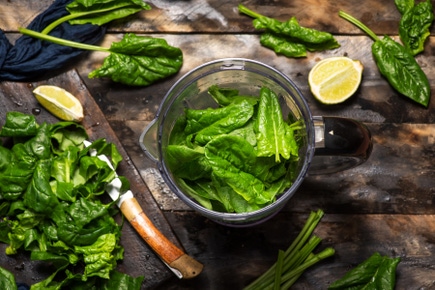.jpg?width=525&height=350&format=jpg&quality=95)
Are Veggies Better for You When Cooked?
When it’s cold outside, a crisp salad or raw veggie snack doesn’t always hit the spot. Luckily, some veggies are even better for you when cooked – unlocking extra nutrients and deeper flavour. Sanitarium Registered Dietitian Rachel Moore explains.
“You may have heard that cooking vegetables can destroy some of their nutrients – but that’s only part of the story. In fact, for some veggies, cooking can enhance certain nutrients, like antioxidants and vitamins – making them easier for your body to absorb,” says Rachel.
Rachel suggests trying the following cooked veggies in your winter warming meals:
- Tomatoes are one of the best examples of the benefits of cooking your veg. Cooking boosts the lycopene content – a powerful antioxidant linked to heart health and reduced inflammation. Heat also increases flavonoids and phenolic compounds in tomatoes. And the even better news is that they are heat stable, so you don’t lose them in long simmered sauces or soups.
- Mushrooms are already nutrient-rich, but cooking them using moderate heat can help increase their antioxidant levels. Risottos or soups are also great options in colder months.
- Green beans show increased antioxidant activity when lightly cooked. Steaming or pan-frying helps retain more nutrients than other methods while making them easier to digest, while high heat and water-heavy methods like boiling can reduce their benefits. Try stir-frying or adding them soups and stews.
- Cruciferous vegetables including broccoli, Brussels sprouts, cauliflower, kale and cabbage are another good example of the benefits of cooking. Heat helps reduce glucosinolates compounds that can contribute to the bitterness some people associate with them raw.
Rachel’s go-to strategy for getting more veg? Cook once, eat often.
“I like roasting a big tray of mixed veg at the start of the week — sweet potato, capsicum, carrots, onion, whatever’s in the fridge,” she says. “It’s an easy way to add veg to lunches and dinners throughout the week.”
Rachel also recommends using soups and broths as a base for colour and variety.
“In winter, I often want something warm and ‘slurpable’ like a ramen or laksa.
They’re great for throwing in whatever veg you have – and it’s a great way to eat the rainbow and get your plant points in.”
So... are veggies better for you when cooked?
Sometimes – but it depends on the vegetable, how it’s cooked, and how likely you are to actually eat it.
“Ultimately, the healthiest vegetables are the ones you’re eating regularly,” Rachel says.
“Whether they’re raw, roasted, steamed or stir-fried – adding more vegetables in any form is always a positive step.”

The latest nutrition advice, plus health and wellness tips delivered to your inbox monthly

.jpg?width=435&height=290&format=jpg&quality=95)